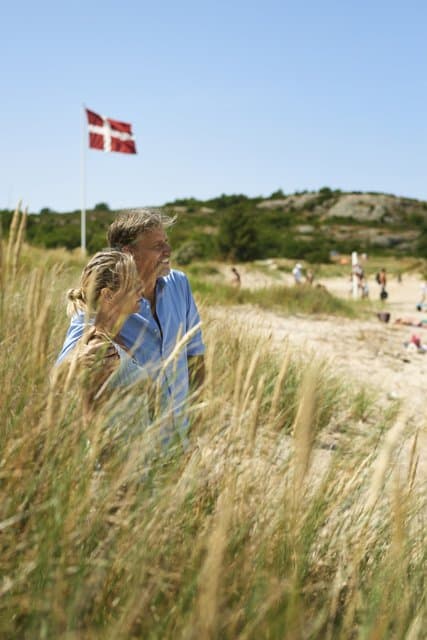Travel to Denmark – information and tips
.
Covid-19 in Denmark
All corona restrictions have been lifted since 1st of February 2022. Restrictions such as mask requirements, contact restrictions, corona passes etc. are therefore no longer applicable. Covid-19 is no longer classified as a critical disease in Denmark.
Entry: Citizens from EU and Schengen countries can enter Denmark, and their vaccination status is no longer checked.
Driving in Denmark: Information for visiting drivers
Information and tips for foreign tourists traveling to Denmark:
Mandatory documents
Upon entering Denmark for border control, you must bring the following travel documents:
- Every EU/EEA citizen must show passport or National ID card approved as travel ID.
- If you are a national of a Nordic country, you are not required to bring your passports when entering Denmark due to the Nordic Passport Union, but you must prove that you are a national of a Nordic country. Only passports, driving license and national ID cards can provide information about nationality.
Other mandatory documents are:
- Driver´s license (required)
- International Driver´s license (recommended)
- Proof of insurance (required)
- Car registration document or rental agreement (required)


Rules in Denmark
In the Scandinavian countries there are similar laws and regulations, but there are rules that are specific to Denmark.
Headlights
Remember to keep your headlights on at all times. It is required in Denmark, even during the daytime.
Seat belts
There must be seat belts to all seats in the car. In other words, it is illegal to have more people in the car than there are seat belts for, and everyone in the car must wear a seat belt. When the children in the car are under 15, it is the driver´s responsibility that they use a seat belt.
Mobile phones
It is strictly prohibited to use mobile phone while driving in Denmark. The use of a hands-fee phone (not a headset) built into the car is permitted.
Danish street signs
In public traffic area the road signs use standard international symbols. Sometimes they include the Danish language.
Tolls
You don’t pay for using the roads in Denmark. However, you have to pay when you cross the two major bridges, the Storebelt Brigde (Storebæltsbroen) between the island of Zealand (Sjælland) and Funen (Fyn) and the Oresund Bridge (Øresundsbroen) between Denmark and Sweden.
In case of an emergency
If you get into an accident or require other emergency services, call 112 nationwide to reach the Danish police, fire department and ambulance. Nearly all Danish police and emergency staff speak English and will be able to communicate with you without any problems.
Tips
Not common in Denmark, even in tourist areas. But it is not rejected.
Bringing pets to Denmark
An EU pet passport is required for travel with certain pets (dogs and cats). It proofs that the animal has been vaccinated against rabies (vaccination must be given no earlier than 21 days before entry), and your dog must also be chipped to enable clear identification. In addition to the chip, it is also mandatory in Denmark for your dog to wear a tag on the collar that states the name of the dog owner and their address.
Drugs
Denmark ban driving under the influence of marijuana (THC, cannabis), methylamphetamine, and MDMA (ecstasy). If the police suspect a driver is under the influence, they will test for various substances. Operating a vehicle while under the influence can lead to a big fine, imprisonment, or even being banned from Denmark.
Driving on the right
In Denmark, you drive on the right side of the road – similar to most of Europe.
Children and car seats
Children under 3 years and measuring less than 135 centimeters must be seated in a properly-fitted child seat. If the vehicle does not have seat belts, children under 3 years old are not allowed in the car while it´s moving.
Speed limits
In Denmark the speed limits are 50 kilometers per hour in towns and 80 kilometers on most roads. On the motorways, you can usually drive 130 kilometers per hour, but some parts only allow 110 kilometers per hour with posted signs.
Parking
Park your motorhome or car in the direction of traffic (the right-hand side of the road). Often you are allowed to park between 1 hour and 2 hours in many places without paying. Parking if indicated by an additional sign are only valid at certain times. Here you should note the special color coding (times in black or white refer to the days of the week from Monday to Friday. Times in brackets are for Saturdays and times in red are for Sundays and public holidays). The traffic rules in Denmark require a parking disc in the windscreen. Foreign cars can buy a parking disc at tourist offices, petrol stations or at www.pintrip.eu.
Petrol stations
The majority of the many petrol stations in Denmark have automatic payment machines that make it easy to fill the tank, when the station is closed. Usually, the machines accept some international credit cards as payments, and many take cash.
Money/Credit cards
The currency in Denmark is the Danish Krone (DKK). You can travel to Denmark with Euros and Maestro (EC) or credit card to begin with. In tourist places you can pay with euros. The official exchange rate is around 1 EUR = 7.41 DKK and is relatively constant. You can withdraw Danish kroner from a Danish ATM, but you can also pay directly by card. This is much more common. Cash payments are generally not accepted at parking machines or on local public transport. We recommend that you take an internationally accepted credit or debit card with you. The popular payment MobilePay can only be used by holders of a Danish personal identification number (CPR number).
Cyclists
Denmark is a nation on two wheels. You will see bicycles everywhere you go, so make sure to watch out for them. Motorists must always yield to bicycles, and they often have their own lanes, but sometimes you have to share the road.
Alcohol
Driving under the influence of alcohol is a definite no go in Denmark. The absolute legal limit of alcohol in your blood is 0.5 percent in Denmark, and that is strictly enforced. If the alcohol limit in your blood is over 0,5 you will receive punishment and fines by the police.
